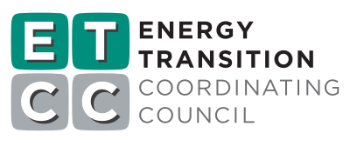Project Info
COMPLETE
Project Title
Heat pump Customer Questions Study
Project Number ET24SWE0022 Organization SWE (Statewide Electric ETP) End-use HVAC Sector Residential Project Year(s) 2024 - 2025Project Results
This research project investigated the obstacles hindering the widespread adoption of heat pumps for space conditioning and water heating among California homeowners. By analyzing publicly available online discussions from platforms such as Reddit and YouTube, this study aimed to identify the concerns and barriers faced by potential heat pump adopters in California. Researchers employed computational and qualitative analysis techniques to understand the perspectives of individuals actively considering heat pump purchases. Using Python, researchers performed automated social media scraping to gather data from online forums, social media, news sites, and video platforms, focusing on Californians' posts. To gain deeper insights, the research included comparisons among comments from potential buyers across different regions of California (Northern, Central, and Southern), between Californians with and without interest in heat pumps, and between Californians and residents of other states. This comprehensive approach revealed unique areas of concern throughout California's varied climate regions and highlighted information gaps relevant to different individual and community demographics. Data analysis relied on embedding and clustering methods to group posts by meaning, providing a baseline for the qualitative identification and categorization of concerns. Online discussions revealed several key barriers preventing potential buyers in California from adopting heat pump technology, including costs, information deficits, home infrastructure, performance concerns, and the influence of gatekeepers. Cost-related barriers encompassed high upfront costs, leading to abandoned purchase plans, skepticism regarding contractor pricing, and difficulties in reducing installation expenses. Potential buyers also expressed confusion about rebate eligibility and the complexity of navigating financial incentives. Notably, concerns about operating costs were particularly strong among PG&E customers, suggesting that utility rates significantly impact adoption in specific service areas. The potential of using solar photovoltaics (PV) to offset operating costs was frequently discussed, with some viewing it as essential. Information deficits also emerged as a significant hurdle. Potential buyers reported confusion about basic heat pump knowledge and struggled to differentiate between various systems. They also encountered conflicting or incomplete advice from contractors and online forums. The lack of accessible and trustworthy information sources left many uncertain about the best systems for their needs and how to manage the technical and financial aspects of installation. Challenges related to existing home infrastructure, particularly the adequacy of electrical panels, insulation, and ductwork, were frequently raised. Potential buyers expressed concerns about the cost, time, and inconvenience of necessary upgrades. Furthermore, concerns about heat pump performance were prevalent, with many expressing doubts about the thermal comfort and efficiency that heat pumps can deliver and some worried about noise. Finally, contractors and landlords acting as gatekeepers presented another barrier. Some online commenters reported contractor reluctance to recommend heat pumps, even with available incentives, while renters faced restrictions on property modifications and landlord unwillingness to invest in heat pumps. Additionally, researchers conducted a gap analysis to evaluate how the information provided by California utilities' and associated third parties' energy efficiency programs aligns with the questions and concerns of potential buyers on other online platforms. This analysis aimed to identify opportunities and recommendations for addressing customer concerns, including resource gaps, priority topics for educational materials, and best practices for customer education. The study's findings highlight critical areas that need to be addressed through targeted education, policy adjustments, and improved communication to accelerate the clean energy transition in California and beyond. Based on the findings, researchers provide practical options for existing and emerging heat pump programs run by California's investor-owned utilities (IOUs), municipal utilities, and third parties to better educate customers, alleviate their concerns, and ultimately increase confidence in purchasing heat pumps.
Project Report Document
Loading PDF Preview...
